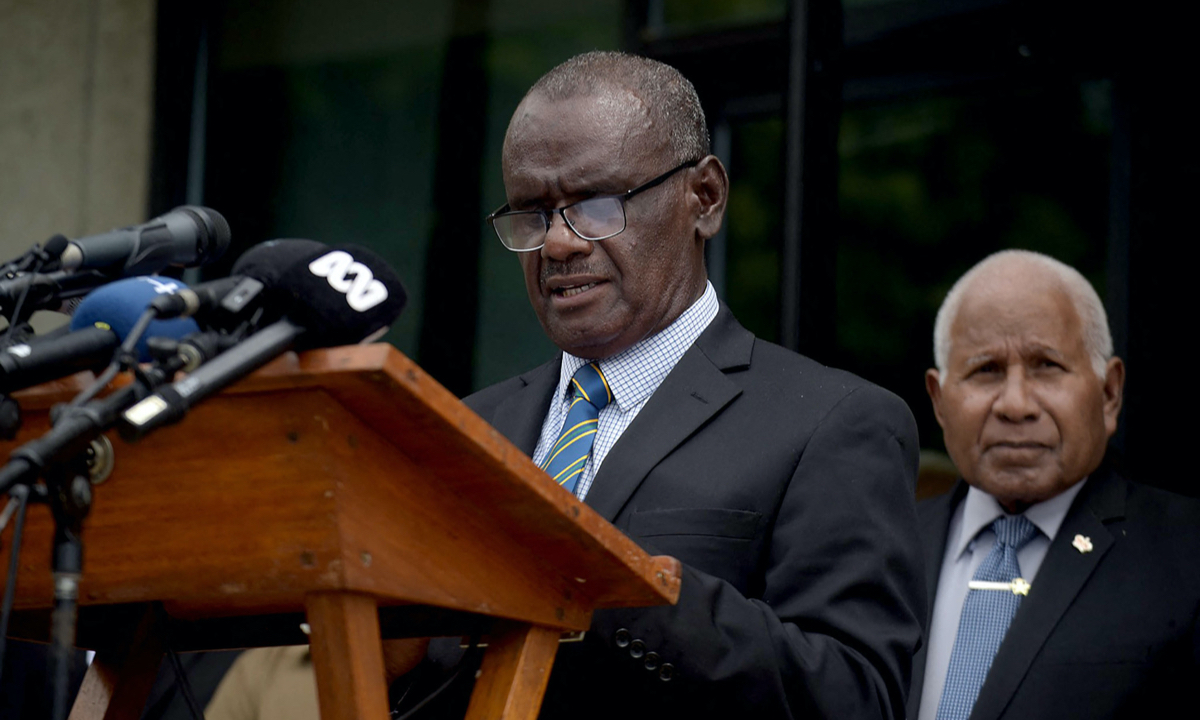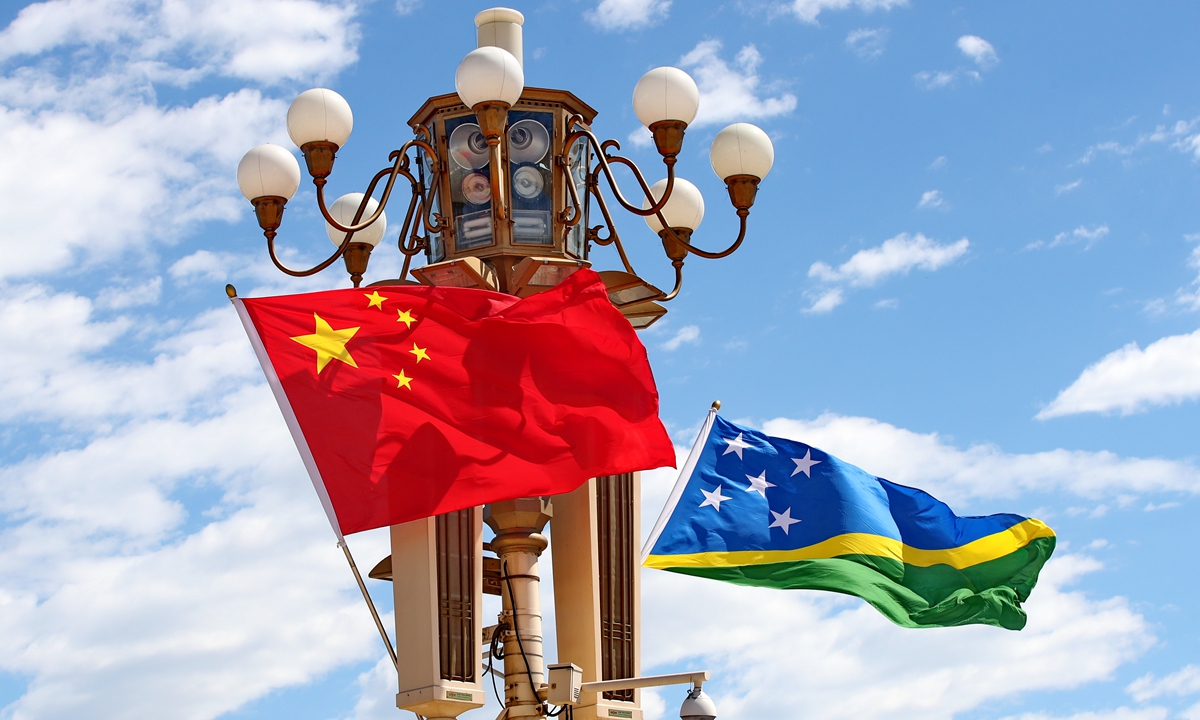Manele's election represents the Pacific Islanders’ voice; West’s slander may trigger strong local resentment

Jeremiah Manele Photo: CFP
Foreign minister Jeremiah Manele was elected as the Solomon Islands' new prime minister by members of parliament on Thursday. As a key figure in Prime Minister Manasseh Sogavare's team, Manele's election represents the broad voice of Pacific Islanders seeking to continue mutually beneficial cooperation with China.
The election marks the first general election in Solomon Islands since establishing diplomatic relations with China in 2019, drawing disproportionate attention from Western media. Some even dubbed it "the most consequential for the country in half a century since independence."
The core reason for the heightened Western interest in Solomon Islands' election is mainly due to some countries, particularly the US, hoping that the Prime Minister Sogavare would not be re-elected, Yu Lei, professor at Shandong University, told the Global Times.
In September 2019, the Solomon Islands cut "diplomatic ties" with the Taiwan region and established diplomatic relations with China, greatly enhancing cooperation between the two countries. In 2022, China and the Solomon Islands officially signed a framework agreement on bilateral security cooperation, further strengthening ties. Currently, China-Solomon Islands cooperation has become a benchmark for China's relations with Pacific Island countries, much to the dismay of some Western countries.
"The West has politicized and ideologized Solomon Islands' domestic election, viewing it as a struggle for control over the Pacific Islands region, with the ultimate goal of targeting China," said Yu Lei.
However, the tactics of the West were effectively dealt with by Sogavare's party. Amid constant "pressure from the US and Western allies" and having been "vilified by media," Sogavare announced his departure from the re-election on Monday. Sogavare's Ownership, Unity and Responsibility Party, known as the OUR Party, backed Manele. Ultimately, Manele defeated opposition leader Matthew Wale in a 31-to-18 vote in the newly elected 50-seat parliament.
The election result reflects the electorate's endorsement and continued support for the policies of the previous government, including those made during Manele's tenure as Foreign Minister and Sogavare's administration. It also signifies the continuity and consistency of Solomon Islands' domestic and foreign policies. The voters widely desire policy stability and ongoing mutually beneficial cooperation with countries like China, which they believe align with the national interest, Chen Hong, executive director of Asia Pacific Studies Centre at East China Normal University, told the Global Times.
Over the past few years, China-Solomon cooperation has yielded tangible results in initiatives such as the Belt and Road Initiative and various projects in infrastructure and SME sectors, significantly aiding job creation and improving livelihoods. Especially in terms of climate change, China has engaged in serious and responsible cooperation with Pacific Island countries, winning the hearts of many Pacific Islanders.
"Manele's election is essentially about carrying forward and advancing these achievements, reflecting the voice of the people," said Chen Hong.
Every country has the right to maximize its national interests. The increasing choice of Pacific Island nations to deepen cooperation with China is based on considerations of their national interests. However, some Western countries, especially the US, are not pleased to see the successes of China's mutually beneficial cooperation in the South Pacific, as these achievements conflict with their goals of maintaining and strengthening hegemony in the region and globally. Some Western media outlets have continually hyped up notions such as China's "influence competition with the US," "ambitions in Pacific countries," and "security threats" around the time of the Solomon Islands election in an attempt to discredit China.
In reality, China's cooperation in the South Pacific, including the Solomon Islands, is based purely on mutual benefit and respect, it's devoid of any geopolitical interests and aimed at promoting regional stability and prosperity. Given China's absence of military bases or troops in the Pacific Islands, the so-called "security threats" are unfounded. It is the Western countries themselves who are trying to militarize the Pacific Islands and undermine local peace and stability. Yet, instead of correcting their actions, they continue to slander China's relationships and interfere in local politics, which is utterly absurd and reflects Western hegemonic thinking and actions, likely to incite strong local resentment, said Chen Hong.
In fact, while the US publicly voices its concern over the so-called "security threats," what truly frightens them is the will of the people in the Pacific Islands. As Manele said after the vote, "The people have spoken." This is a clear signal that the mindset of the people in the Pacific Island region has changed. They no longer want to be pawns in the US' geopolitical games. From previously complying unconditionally with Western countries to now genuinely desiring to engage in mutually beneficial cooperation with China for their own economic development, this will be the common development direction and trend for the Pacific Islands in the future.

